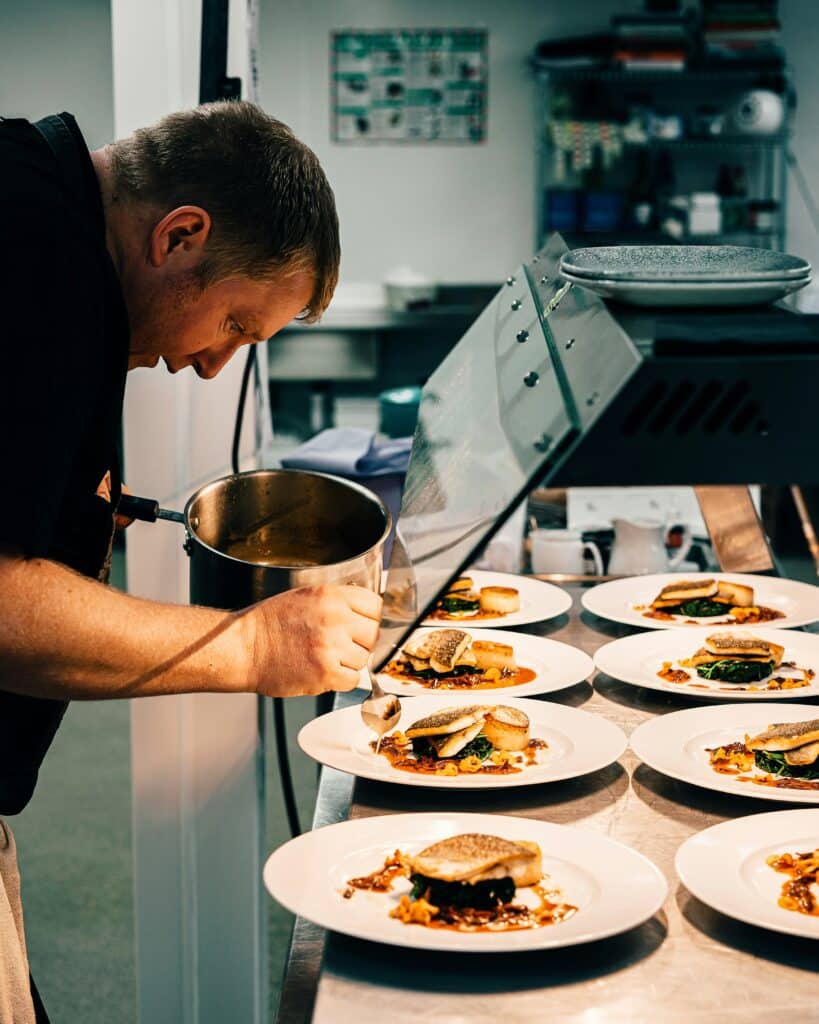Maintaining high standards of food hygiene is a cornerstone of food safety, whether you’re running a professional kitchen, managing a food business, or simply preparing meals at home. Understanding the basics of food hygiene is crucial not only for protecting public health but also for legal requirements for food handlers and businesses. In this blog, we’ll cover the essential principles of food hygiene and how you can ensure your knowledge stays up to date.

Why Is Food Hygiene Important?
Food hygiene ensures that the food we prepare, handle, and consume is safe and free from harmful bacteria, viruses, and other contaminants. Poor food hygiene can lead to foodborne illnesses, which affect millions of people worldwide each year. These illnesses can have serious consequences, including long-term health issues and business reputational damage.
The Five Key Principles of Food Hygiene
Maintain Personal Hygiene
Food handlers must maintain high levels of personal hygiene to prevent contamination. This includes:
- Washing hands thoroughly and frequently.
- Wear clean and appropriate clothing, including hair nets and gloves, where necessary.
- Avoid food preparation if you’re unwell.
Prevent Cross-Contamination
Cross-contamination occurs when harmful bacteria transfer from one surface to another. Minimise risks by:
- Separate chopping boards are used for raw and cooked foods.
- Storing raw and cooked foods separately, with raw items on lower shelves.
- Regularly cleaning and sanitising surfaces and utensils.
Cook Food Thoroughly
Cooking food to the correct temperature is vital to kill harmful bacteria. Use a food thermometer to ensure:
- Poultry reaches 75°C.
- Meats, fish, and reheated foods are cooked to at least 63°C.
Store Food Safely
Proper storage keeps food fresh and safe. Key tips include:
- Keeping perishable items refrigerated at 0-5°C.
- Freezing foods at -18°C to prevent bacterial growth.
- Checking expiry dates and practising FIFO (First In, First Out).
Clean and Sanitize Regularly
Cleanliness is fundamental in any food-handling environment. Ensure:
- Work surfaces and equipment are cleaned before and after use.
- Utensils are sanitised to remove lingering bacteria.
- Waste is disposed of promptly and correctly.
Legal Requirements for Food Hygiene
Food hygiene training is a legal requirement for food handlers in the UK. Regulations like the Food Safety Act 1990 and the Food Hygiene (England) Regulations 2013 mandate that food handlers are trained and competent in food safety practices. This ensures compliance and helps businesses maintain high standards.
How Can You Stay Compliant?
Investing in food hygiene training is one of the best ways to ensure compliance and protect public health. Essential Food Hygiene offers a range of accredited online courses, including:
- Level 2 Food Hygiene & Safety: Perfect for beginners or food handlers needing to refresh their knowledge.
- Level 3 Food Hygiene & Safety: Ideal for supervisors and managers who oversee food operations.
- HACCP Training: Focuses on hazard analysis and critical control points to enhance safety protocols.
Our courses are designed to be flexible and user-friendly, allowing you to learn at your own pace. Upon completion, you’ll receive a certificate demonstrating your commitment to food safety.
Take the First Step Toward Food Safety Today
Whether you’re a seasoned professional or just starting in the food industry, understanding the basics of food hygiene is crucial. By following these principles and investing in proper training, you can ensure the safety of the food you handle and protect the well-being of your customers.
Ready to enhance your food hygiene knowledge? Explore our range of online courses at Essential Food Hygiene and start your journey to better food safety today!
